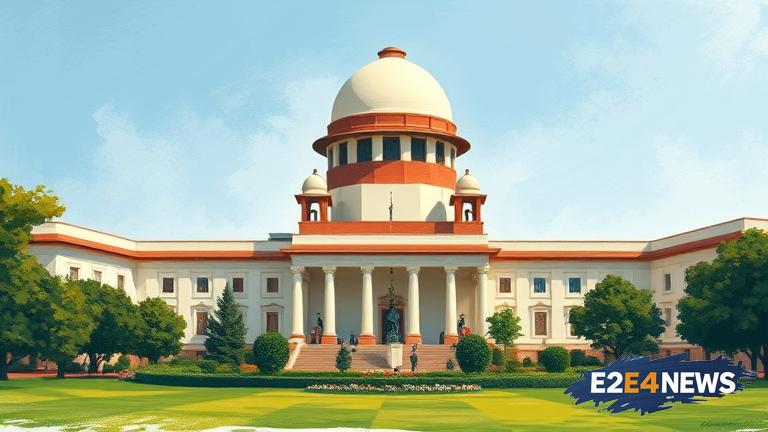The Supreme Court of India has come down heavily on the Enforcement Directorate (ED) for summoning lawyers who provided legal advice to their clients. The court’s strong words have sent a clear message that the ED is crossing all limits in its pursuit of investigations. The ED had summoned several lawyers who had represented clients in cases related to money laundering and other financial crimes. The lawyers were asked to appear before the ED to explain their role in advising their clients. However, the Supreme Court has made it clear that lawyers have a duty to provide legal advice to their clients, and they cannot be summoned by the ED for doing so. The court has stated that the ED’s actions are an attempt to intimidate and harass lawyers, which is unacceptable. The Supreme Court’s decision has been welcomed by the legal community, which had been expressing concerns about the ED’s overreach. The ED has been accused of misusing its powers to target individuals and organizations, and the Supreme Court’s intervention is seen as a necessary check on the agency’s authority. The court’s decision is also expected to have implications for the ongoing investigations into various high-profile cases, including those related to money laundering and corruption. The ED had been using the Prevention of Money Laundering Act (PMLA) to summon lawyers and other individuals, but the Supreme Court has made it clear that the agency cannot use this law to harass and intimidate people. The court has also emphasized the importance of protecting the rights of lawyers and their clients, and has warned the ED against overstepping its bounds. The Supreme Court’s decision is a significant setback for the ED, which had been trying to expand its powers and jurisdiction. The agency will now have to be more careful in its investigations and ensure that it does not overstep its limits. The legal community has hailed the Supreme Court’s decision as a victory for the rule of law and the protection of individual rights. The decision is also expected to have implications for the broader debate about the balance of power between the government and the judiciary. The Supreme Court’s intervention is seen as a necessary check on the government’s authority, and a reminder that the judiciary will not hesitate to step in when the government oversteps its bounds. The ED’s actions had been widely criticized by the legal community, and the Supreme Court’s decision is a vindication of their concerns. The court’s decision is also expected to have implications for the ongoing discussions about the need for greater transparency and accountability in government agencies. The Supreme Court’s decision is a significant development in the ongoing saga of the ED’s investigations, and it will be closely watched by the legal community and the media.
